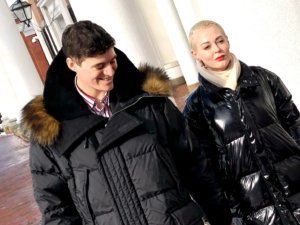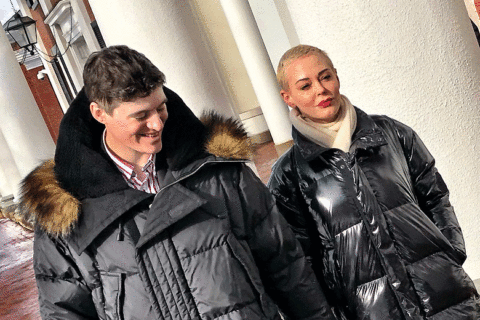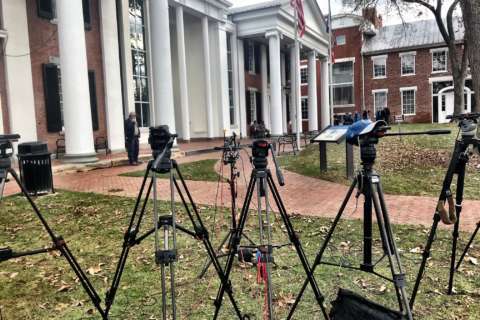A new book about the investigation into Hollywood mogul Harvey Weinstein’s treatment of women details steps taken to keep actress Rose McGowan and other victims of sexual assault and harassment quiet. But one claim against Weinstein — that he hired someone to plant cocaine in McGowan’s wallet, which was found at Dulles International Airport — has no evidence to support it, WTOP has learned.
“She Said,” by New York Times investigative reporters Jodi Kantor and Megan Twohey, explains what went into the initial reporting of Oct. 5, 2017’s “Harvey Weinstein paid off sexual harassment accusers for decades,” which played a major role in what became known as the #MeToo movement.
Among the revelations was a memo from lawyer Lisa Bloom, whose career has included representing victims of sexual harassment in cases against comedian Bill Cosby and financier Jeffrey Epstein.
“In 2016, something remarkable happened: Lisa Bloom crossed sides and went to go work for Harvey Weinstein,” Twohey told WTOP.
“There’s this memo she wrote him in 2016, in which she basically spelled out all of the tactics that she was prepared to use to undermine one of his accusers, Rose McGowan,” Twohey said. At that point, McGowan had hinted that Weinstein had raped her, but had not publicly accused him.

According to Twohey, Bloom “basically spelled out all of the tactics she was prepared to use to undermine” McGowan.
In “She Said,” Twohey said one of the options suggested by Bloom “involved approaching Rose and attempting to play nice and see if they can buy her off in some way.”
Another Bloom option was far more sinister, Twohey said.
“She talks about an online counter-ops campaign, in which they plant negative stories about Rose that will make her sound not credible, including planting a story about her becoming increasingly unglued,” Twohey said. “So that if she did ever go public with her allegation of rape against Weinstein, that would be one of the first things that would come up [in a Google search] and help to discredit her.”
In addition, Bloom met with private investigators, “including an agent from the Black Cube firm, made up of former Israeli intelligence officials who were promised a $300,000 bonus if they could stop our investigation,” as Kantor and Twohey pursed their story.
In the initial New York Times story, Bloom said Weinstein “denies many of the accusations as patently false,” but stepped down as his attorney a few days later.
“But she has said she has come around to saying that working for Weinstein was a colossal mistake and has apologized for that,” Twohey said of Bloom.
As WTOP reported exclusively in February 2018, McGowan’s co-counsel at the time, Jessica Carmichael, suggested two bags of cocaine were planted in McGowan’s wallet, perhaps by someone working for Weinstein.
“At all times, Ms. McGowan has maintained her innocence,” Carmichael wrote. “Unfortunately, Ms. McGowan’s situation is complicated by the Harvey Weinstein machine.”
This week, sources familiar with McGowan’s drug case in Loudoun County, Virginia, told WTOP the defense never gathered or presented any independent proof that Weinstein had anything to do with the cocaine found in McGowan’s wallet, which was discovered by a plane cleaning crew after she got off a flight from Los Angeles.
Initially charged with possession of cocaine, a felony which carries a maximum sentence of 10 years in prison, McGowan pleaded no contest to a reduced charge of possession of a controlled substance.
McGowan was given a 12-month suspended sentence and paid a $2,500 fine.







